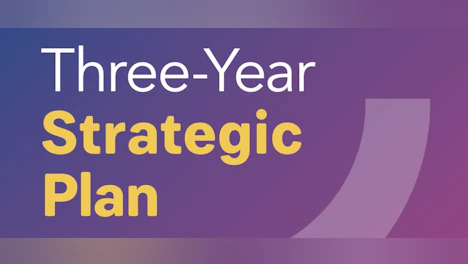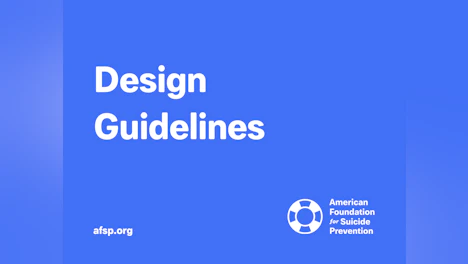About AFSP
Mission
Save Lives and Bring Hope to Those Affected by Suicide
Established in 1987, the American Foundation for Suicide Prevention (AFSP) is a voluntary health organization that gives those affected by suicide a nationwide community empowered by research, education and advocacy to take action against this leading cause of death.
AFSP is dedicated to saving lives and bringing hope to those affected by suicide, including those who have experienced a loss. AFSP creates a culture that’s smart about mental health by engaging in the following core strategies:
- Funding scientific research
- Educating the public about mental health and suicide prevention
- Advocating for public policies in mental health and suicide prevention
- Supporting survivors of suicide loss and those affected by suicide
Led by CEO Robert Gebbia and headquartered in New York, with an advocacy and policy office in Washington, DC, AFSP has local chapters in all 50 states, DC, and Puerto Rico, with programs and events nationwide. Learn more about AFSP in its latest Annual Report, and join the conversation on suicide prevention by following AFSP on Facebook, Twitter, Instagram, and YouTube.
Diversity & inclusion
Suicide and mental health issues do not discriminate, and so it is imperative that we take an uncompromisingly anti-racist approach to improve access to culturally informed, evidence-based quality mental health care. We are dedicated to a process of change knowing that long-term, sustained efforts are needed. We have much more work ahead of us and are committed to change our culture and reverse the impact of systemic racism within the field of mental health. We all have a role to play and invite individuals, communities, organizations, and thought leaders to join us in our efforts to create long-lasting changes in mental health equity and to prevent suicide amongst marginalized communities.
The history of AFSP
In 1987, a small group of caring individuals had a vision: to establish a private source of support for suicide research and education, so that essential suicide prevention efforts could be sustained into the future. These founding families—each of whom had lost someone to suicide—joined with scientists to create what today is the American Foundation for Suicide Prevention, or AFSP.
Many of our original founders were concerned about an alarming rise in youth suicide over the previous four decades. During this period, the suicide of young men had tripled, while for young women it had doubled. Suicide is currently the third leading cause of death among young people age 15 to 24. The highest overall rates of suicide are for adults age 40 to 59.
Before AFSP, there was no national-scope not-for-profit organization dedicated to understanding and preventing suicide through research, education and advocacy.
Since its founding in 1987, AFSP has:
- Mobilized and connected tens of thousands of people who have lost a family member, loved one, or friend to suicide
- Reached thousands of individuals who are at risk for suicide, as well as those who love and care for them
- Attracted the participation of members of the scientific and clinical communities, who conduct groundbreaking research on suicide and its prevention with support from AFSP
- Established local chapters in all 50 states, Puerto Rico and DC
- Educated hundreds of local communities about suicide and how to prevent it
- Created an advocacy and public policy and lobbying arm by merging successfully with an existing national policy organization, thus enabling AFSP to press for legislation and policies at the federal, state and local levels that advance the goal of preventing suicide
- Substantially increased our funding from individual donors, including the thousands of highly motivated individuals who participate in our Out of the Darkness Walks
- Educated reporters and the media about how to best cover suicide
- Communicated with hundreds of thousands of individuals through our website, social media, brochures, speakers and efforts to generate press coverage
Contact our national office
Toll-Free: 1-888-333-AFSP (2377)
T: (212) 363-3500
F: (212) 408-9684
General Inquiries: [email protected]
AFSP is unable to provide crisis support services. If you are in crisis, call or text 988.
Questions about local education programs, local support resources, and fundraising events are best answered by your nearest AFSP chapter. Find your closest chapter at afsp.org/chapters.
Mailing Address:
199 Water St.
11th Floor
New York, NY 10038
Contact our policy and advocacy office
Email: [email protected] (replies limited to legislative, policy or advocacy related matters only)
T: (202) 449-3600
Contact our public relations department
Email: [email protected]
Chief Executive Officer
Chief Medical Officer
Executive Vice President and Chief Financial Officer
Executive Vice President and Chief People, Culture, and Diversity Officer
Executive Vice President and Chief Operating Officer
Executive Vice President and Chief Communications Officer
Executive Vice President and Chief Policy and Advocacy Officer
Senior Vice President of Research
Senior Vice President for Chapter Operations
Senior Vice President of Programs



